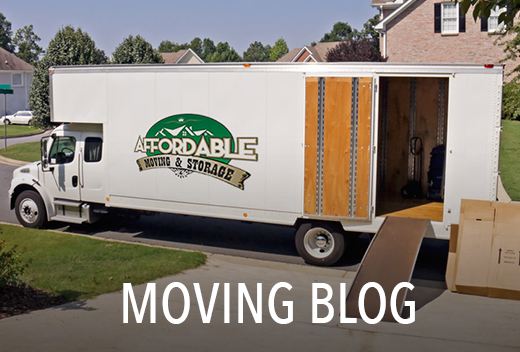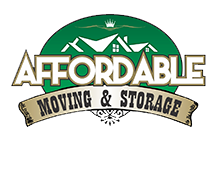
Why Hiring Professional Piano Movers Is Worth Every Penny
GET A Free Quote

Years of Experience
9+
Moves Completed
10,000+
Customers Happy
94%
Claim Rate
2%

Why Hiring Professional Piano Movers Is Worth Every Penny
Moving a piano isn't like shifting ordinary furniture. It's a precise, delicate operation requiring experience, proper gear, and attention to detail. Here's why investing in professional piano movers delivers safety, peace of mind, and value.
The Difference Between Regular Movers and Piano Movers
1. Training & Experience
Regular movers are skilled at moving general household items, but piano movers are specifically trained to handle the complexity of moving delicate and heavy instruments. They understand the internal mechanics of pianos, such as the soundboard, strings, and pedals, and know how to secure these components during the move. This ensures the piano's functionality and condition are not compromised during the process.
2. Specialized Equipment
Pianos, due to their size and weight, require special equipment to move them safely. Piano skid boards are designed to support the weight and shape of the instrument, while heavy-duty dollies and hydraulic lift gates help move the piano smoothly without damaging floors, walls, or the piano itself. These tools are specifically chosen to handle pianos and are essential for safe transport.
3. Insurance & Protection
Moving a piano involves risks—both to the instrument and your home. Piano movers carry specialized insurance policies that cover potential damage during transport. This type of insurance is different from regular moving insurance and is crucial for protecting high-value instruments. By hiring professional piano movers, you're ensured peace of mind knowing that your piano is covered in case of accidents.
These factors mean movers of pianos bring unmatched safety and expertise.
What to Expect When You Hire Piano Movers
1. Initial consultation
Before the actual move, the movers of pianos will conduct an assessment of the piano's type (grand, upright, etc.), location, and the move's complexity. They'll check the environment for obstacles (like stairs, narrow hallways, or doors), and discuss the logistics of the move, such as the best time and route. This initial consultation ensures everything is planned thoroughly, avoiding surprises.
2. Customized moving plan
Each piano move is different. A piano mover will design a tailored plan based on your specific situation. This includes determining which equipment will be needed, how many movers will be involved, and a clear timeline for the move. This planning ensures an efficient and smooth move.
3. On-site preparation
The piano will be carefully prepared before being moved. Protective wrapping will be applied to the piano, covering delicate parts like the keys, pedals, and the wood finish. This helps to prevent any scratches, dents, or other types of damage that could occur during the move.
4. Execution
The move is carefully coordinated. The movers will load the piano using the correct lifting techniques and equipment to avoid injury or damage. Hydraulic lift gates or ramps will be used to load the piano onto trucks gently. In some cases, additional equipment, like special cradles or dollies, will be used for large or heavy pianos.
5. Delivery & placement
Once the piano is safely transported to the new location, the movers will carefully unload it and place it in the desired spot. For grand pianos, this might also involve reassembling parts, like the lid or pedals, and ensuring that everything is positioned properly for playability.
This method gives you confidence—your instrument arrives intact and ready to play.
How Piano Movers Ensure Safe Transport of Grand and Upright Pianos
1. Internal securing
Pianos are complex instruments, and their internal parts can be delicate. Piano movers secure the internal components of the piano (like the soundboard, hammers, and pedals) to prevent them from moving or getting damaged during the move. This may include bolting or strapping certain parts to ensure they stay in place while being transported.
2. Protective wrapping
Custom blankets, padding, and straps are used to protect the piano from surface damage. These materials shield the piano from scratches, dings, and other impacts that can occur during the move. Pianos are often fragile, especially in transit, so this wrapping is essential for maintaining their condition.
3. Balance & weight distribution
Pianos are heavy, and their weight needs to be evenly distributed during transport. Professional piano movers understand the importance of balancing the weight across dollies and trucks to avoid putting stress on one side of the piano. This helps prevent tipping or other damage that could occur during transport.
4. Climate-aware handling
Pianos are sensitive to extreme temperatures and humidity, which can cause the wood to warp or the internal parts to become damaged. Piano movers are aware of these risks and will take extra precautions to ensure that the piano is not exposed to harsh environmental conditions during transport.
How Much Do Piano Movers Cost & How Much for Piano Movers?
Piano type
The cost of moving a piano varies based on its type. Upright pianos are generally cheaper to move because they are smaller and lighter than grand pianos. Grand pianos, especially concert grand pianos, require more time, effort, and specialized equipment to move, making their cost higher.
Distance between locations
The cost will also depend on how far the piano needs to be transported. Local moves (within the same city or region) will usually cost less than long-distance moves, which involve more travel time and possibly overnight accommodations for movers.
Specialty needs
If your move involves difficult access points, such as narrow stairways, elevators, or steep inclines, additional labor or equipment might be necessary. These complexities can increase the overall cost.
Do You Tip Piano Movers?
Tipping appreciation
While not mandatory, tipping piano movers is a great way to show appreciation for their hard work. Pianos are often heavy and difficult to maneuver, so if the movers have handled your instrument carefully and efficiently, a tip is a nice way to acknowledge their effort.
Tip range
Typically, tipping $20–$50 per mover is standard, depending on the complexity of the move. If your move was particularly difficult or the movers went above and beyond, you might consider tipping more.
Top Questions to Ask Before Hiring Piano Movers
1. Are you licensed and insured specifically for piano moving?
It's important to ensure the company is not only licensed but also insured for piano moving. Regular movers may not have the specific insurance necessary to cover potential damage to a piano. Piano-specific insurance provides better protection.
2. What is your experience with my piano type?
Different types of pianos (upright, grand, concert grand) require different moving techniques. Be sure to ask if the movers have experience with your specific piano model to ensure they know how to handle it properly.
3. Which specialized equipment will you use?
Ask about the equipment that will be used. This includes whether they'll use piano cradles, hydraulic lift gates, and special dollies. The right equipment is crucial for moving your piano safely.
4. Do you provide binding cost estimates?
Ensure that the company offers a binding estimate, meaning the price won't change unless the scope of the move changes significantly. This will help avoid surprise fees later.
5. What's your policy on delays, damage, or cancellations?
Make sure to ask about the company's policy in case of unexpected delays, cancellations, or damage to the piano. A reputable company, like Affordable Moving & Storage, will have clear policies to protect you and your instruments.
Asking these ensures trust, transparency, and smooth execution.
Choosing Professional Piano Movers: Peace of Mind, Performance Protected
Every instrument deserves expert care. Affordable Moving & Storage offers professional piano movers in NJ with advanced training, specialized equipment, and full insurance coverage—ensuring your piano is moved safely and without stress. You're not just paying for strength and muscle: you're paying for confidence, safety, and a safe landing for your cherished piano.
Ready to Move? Get Your Piano There—Safely
If you're in NJ or NYC and searching for reliable ‘piano movers near me', Affordable Moving & Storage is your trusted local choice. We'll walk you through our process, provide a clear estimate, and ensure your piano arrives in perfect condition.
Thank you for trusting us with your most special possessions. Let Affordable Moving & Storage make your next piano move smooth, secure, and stress‑free.
FAQs
Why Should I Hire Professional Piano Movers Instead of Regular Movers?
Piano movers specialize in handling delicate and heavy instruments. They use proper equipment, like piano cradles and dollies, to ensure safe transport and avoid damage. Their expertise in maneuvering pianos through tight spaces reduces the risk of accidents, unlike regular movers who may not have the experience or tools for the job.
How Much Does It Cost to Hire Piano Movers?
The cost varies based on piano type, distance, and complexity. Typically, local moves for upright pianos range from $200 to $500, while grand pianos can cost $350 to $900. Long-distance or complicated moves may cost more.
Can't I Move a Piano Myself with a Few Friends?
Moving a piano yourself is risky. Pianos are heavy, fragile, and require proper equipment. Piano movers have the expertise and tools to avoid injury and damage, making it safer and more efficient to hire professionals.
Are Piano Movers Insured?
Yes, piano movers are typically insured. It's important to confirm that the company offers piano-specific insurance to cover potential damage to your piano and property during the move.
How Do I Choose a Trustworthy Piano Mover?
Look for experience with your type of piano, verify insurance and licensing, check customer reviews, and ask about their specialized equipment. Get a written estimate for transparency on costs.
How Do I Prepare My Piano Before Movers Arrive?
Clear the area around the piano, remove detachable parts, secure the lid, and ensure a clear pathway for the movers. Inform them about any special care needed for your piano to help ensure a smooth move.


